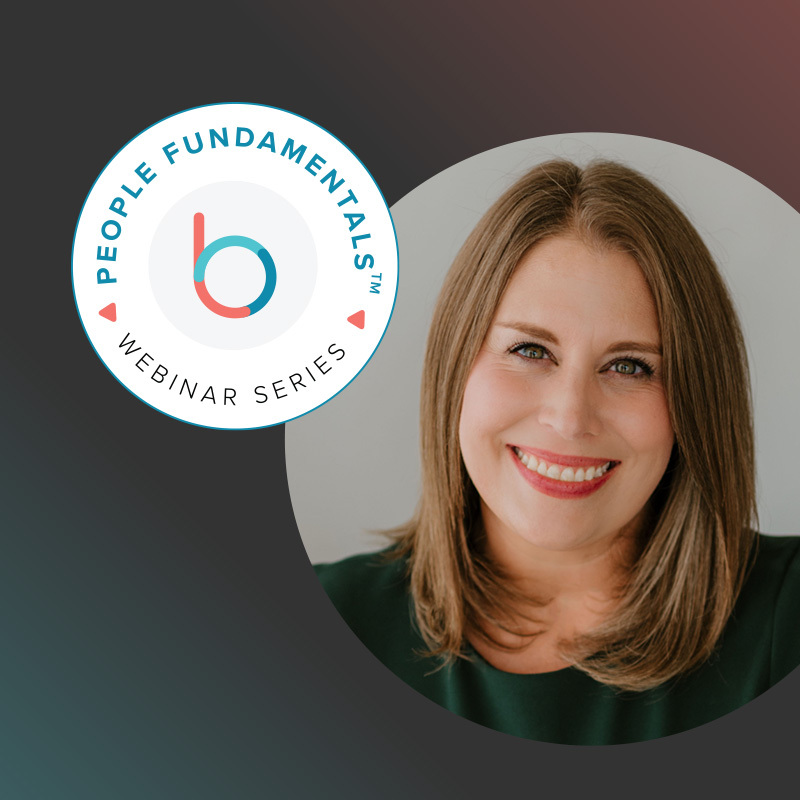When Google launched Project Oxygen, a multiyear research initiative that measured key management behaviors, it uncovered incredible insights into what makes a manager great—empowering instead of micromanaging, communicating effectively and, at the top of the list, being a good coach.
The role of the manager is evolving from that of a project manager making sure initiatives are completed to one of empowering the team to achieve more. In conversations with HR leaders and managers, we consistently hear that the biggest gap between what managers do and what they want to do is coaching their team.
But what exactly does “being a good coach” mean for a manager? After all, it’s pretty difficult to run 6AM workout drills in the workplace.
That’s where OKRs, or Objectives and Key Results, come in. Here at BetterWorks, we talk a lot about OKRs: they provide clarity, alignment and effective feedback. They’re transparent, so they help individuals see the broader picture. They come from both top down and bottom up adoption. They can be aspirational and inspiring.
Here is a 5-step framework for managers to think about while setting OKRs:
Coach to a target
[tweet]Great managers set the vision for their team[/tweet] and then have the team determine how best to achieve that vision. The OKR methodology can be used to help managers become better coaches by giving them a way to communicate their vision and facilitate how to define success through quantifiable key results.
How do you set big objectives for your team? Study yourself and study where your team needs to be. Instead of setting just any objectives, set good objectives that will move your team and the company forward.
Questions to ask:
- What are the strategic initiatives of the company and how can my team align and contribute to them?
- What are the biggest opportunities for my team next year?
- What are the biggest gaps on my team?
Nurture skills
Great managers set long-term OKRs for their teams and help provide a roadmap to achieve those OKRs. In addition to assigning out OKRs, managers should dedicate one of their own goals to developing the team. As a coach, one of your key objectives should be building the right people and aligning their skills.
Identify what skills and expertise your team needs and as a coach, you need to make sure that you provide the opportunity to develop these skills. If you don’t have one of those skills, start hiring for it.
Questions to ask:
- What skills does my existing team have that separates them from the rest?
- What skills does each of my team members need for the next level?
- What skills do we need to unlock team productivity?
Instill will on your team
Motivation is a powerful driver. In 2014, less than one-third of U.S. workers were engaged in their jobs, with 51% disengaged and 17.5% actively disengaged. They perform without enthusiasm or care for work.
How can you, as a manager, increase employee engagement? We believe that 50-60% of key results should come from the bottom up. When OKRs are driven from the top down and bottom up, employees become more engaged because there’s active contribution at all levels. Everyone’s a player.
Questions to ask:
- What can I do to create ownership at the individual level? Am I allowing my team to own their own goals?
- Am I encouraging audacious or aspirational goals to challenge and empower my direct reports?
- How can I create a culture where risk-taking is okay?
Recruit the team and support collaboration
Improve your team’s output by getting help from your team. Coaching is a team effort. One of the most effective ways to coach collaboratively is through regular goal reviews. Tom Lodes, Product Manager at Intuit, says that regular goal reviews are “where the work gets done, where strategic initiatives gets converted into work.”
Questions to ask during goal reviews:
- Is this objective on track?
- How can the team and I help you achieve your objective?
- Has anything changed to either your prioritization or key results?
Take time to reflect
Setting an OKR is easy, but setting a quality OKR that is good for the business requires experience. Good coaches continually work with their team to refine and improve their goals.
Even after an OKR is marked “complete,” reflection is important. According to an article from the First Round Review, “Startup leaders can’t afford to have low learning efficiency. They must milk each experience for maximum learning. Reflection is the key for accelerating your learning curve.”
Questions to ask yourself and your team:
- What did I accomplish?
- What are the means by which I accomplished it?
- If I were to rewrite the goal that I’ve just accomplished, what would I change?
We’ve created this short worksheet of the questions I’ve included in this post, in hopes that this framework can serve as a guide for managers to become better coaches. Download, enter your answers and print!



